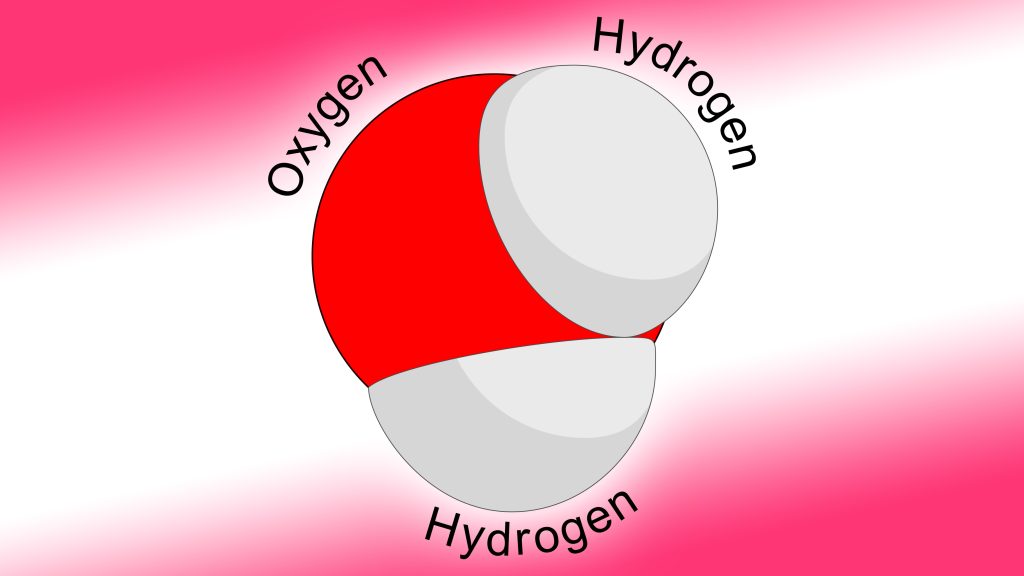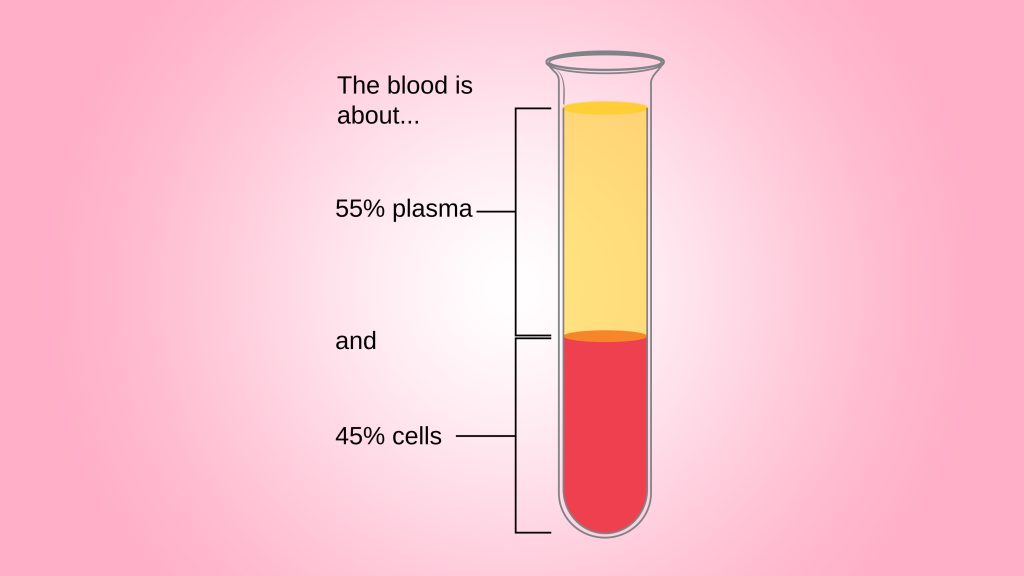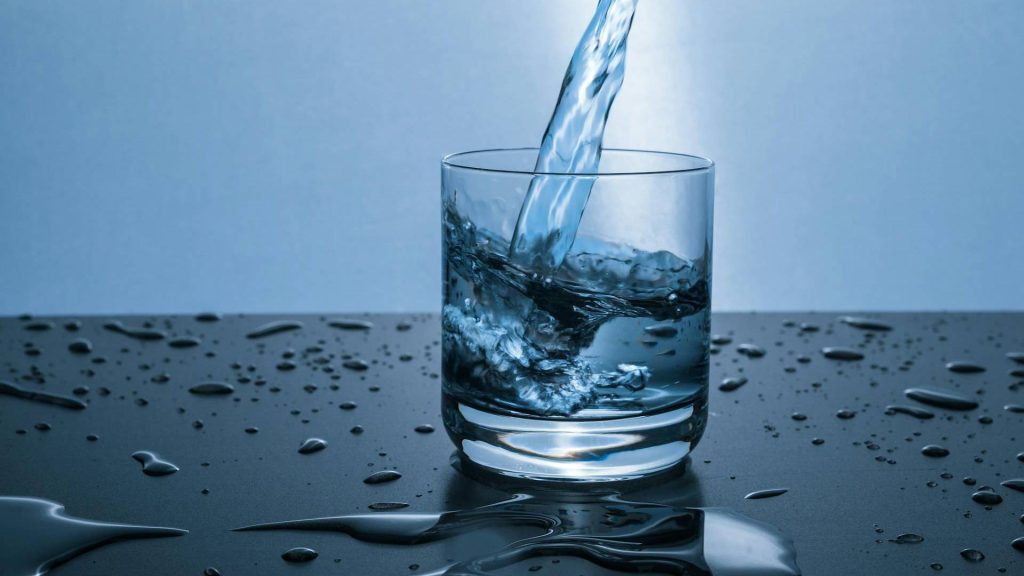Why to stay hydrated
More than any other substance, water defines our bodies and the world we live in. It not only covers over 70% of the planet, water accounts for about 60% of the human body by weight. Despite being odorless, flavorless, colorless, and containing no caloric value, life as we know it is not possible without water. But what is it, and why is it so vital?

First, science
Water is a molecule made up of an oxygen atom and two hydrogen atoms. Aside from keeping us alive it’s used for everything from sports and recreation to transportation and industry. In the body, water regulates body temperature, lubricates joints, distributes nutrients, and removes wastes, maintaining the physical equilibrium of the body (homeostasis).
The water cycle in the human body
When you drink water it passes through your stomach and into your small intestine where over 80% of it is absorbed into the bloodstream. Your blood is made up of red blood cells (oxygen carriers), white blood cells (defense mechanisms), platelets (clotting agents), and plasma (the liquid medium in which the previous three molecules are suspended). Unlike blood cells and platelets, which are produced by the body, blood plasma comes entirely from the water you drink and the food you eat. Plasma comprises about 55% of your blood, and that plasma is around 92% water.

Water plays a crucial role in regulating your body heat as well. Blood (which is mostly water) is responsible for regulating the internal heat your body produces by moving it from overheated areas to the skin where it can be dissipated. Outside the body, sweat (again, mostly water) cools the skin by evaporating off your body, taking a bit of that heat with it in much the same way you feel cold when first getting out of the pool.
Water also acts as a solvent for nutrients in your body, such as sugar and salt. Your blood transfers these dissolved nutrients to a water-rich fluid medium that surrounds your cells called the interstitial fluid. This fluid — which makes up over 25% of your total body water — is the medium through which nutrients are transferred from your blood to your cells (which contain over 60% of your total body water).
Once your cells have processed the nutrients they need, water is the means by which waste products are expelled from the body. The kidneys filter the waste out of your blood and expel it via urine, which is (you guessed it) mostly made up of water.
Where things can go wrong
Water’s job is to keep your body at its baseline. There is a delicate internal balance between the water inside your cells and the water outside. Things start to go wrong when you don’t get enough of it or you drink too much.

Dehydration
Without sufficient water, you can’t replenish your plasma, causing your blood volume to drop. With less blood to work with, your heart will work harder trying to supply the same amount of nutrients with less to work with. Less blood also leads to lower blood pressure which can cause tiredness, dizziness, and fainting.
Without enough water you’ll start to get thirsty, your mouth and lips will become dry, and you won’t be able to sweat. The lack of sweat and the reduced blood volume to dissipate heat will cause you to overheat. You become irritable and get a headache. You can’t think straight.
Long term, failing to keep yourself hydrated can be even worse. Poor water intake has been linked to a number of bad outcomes, from a higher incidence of kidney stones to exercise related asthma. If you’re thirsty, there’s no good reason not to drink water.

Overhydration
On the opposite end of the spectrum from dehydration is overhydration or water intoxication. Although overhydration isn’t as well understood as dehydration, its consequences can be just as gnarly. The body’s primary response to drinking more water than it needs is to make lots of urine, but your body is only capable of expelling so much water, and everyone’s limit is different.
When your fluid intake begins to outpace your capacity to get rid of it, you start encountering problems. The main issue for your body is the dilution of sodium in your plasma, a condition called hyponatremia. When this happens, it creates an osmotic gradient between your extracellular fluid and your intracellular fluid. Basically, because the fluid in your cells has more solutes in it (primarily potassium), the water is driven by osmotic pressure into the cells, causing them to swell. This happens everywhere in your body, but it’s particularly bad news for the cells in your brain.
The first signs of overhydration (other than having to pee a lot) are nausea and vomiting. In this case, these are neurological symptoms because the brain is swollen (cerebral edema) and it doesn’t have a lot of room to expand. Once it gets too swollen it starts to compress blood vessels and nerves and it begins to induce a litany of unpleasant symptoms. Untreated, these symptoms worsen until you experience seizures, coma, and death. The good news is that your body tries really hard to keep this from happening, so absent some other causes, you’d have to put in some effort to get to this point.
What to do
The good news is that for most people, water is easy to come by. Unfortunately, no one can tell you exactly how much water you need to drink in a day. Daily needs vary from individual to individual based on metabolism, body size, lifestyle, age, gender, and genetics. Compounding the difficulty is that water needs are often overlooked and understudied, most likely because it is such a basic need.
The most widely known advice about water is to drink eight 8-ounce glasses of water per day. This recommendation was made because for most people it’s more than adequate and it’s easy to remember. The best advice is to listen to your body: if you’re thirsty, drink.

